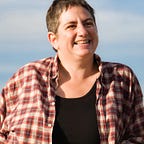Had motherhood ruined my favorite childhood stories?
As I snuggled in with my husband and my then-first-grader to watch Rudolph the Red-Nosed Reindeer, I looked forward to sharing my childhood memories of Rankin and Bass’ claymation classic.
Within five minutes of pressing play, though, all I could think was, “Why is everyone being so mean?”
The other reindeer. Rudolph’s father. Rudolph’s teacher, Comet, who first joins Rudolph’s classmates in taunting him, then cheerfully kicks Rudolph out of reindeer school for not looking like everyone else. Even Father Christmas is no help; Santa does nothing to defend the young reindeer as he’s reminded, again and again, that he doesn’t belong. Finally, Rudolph gives up trying to fit in and runs away from home — and straight into his adventure.
As a kid, I wasn’t bothered by this relentless cruelty, even though I no more fit in with my peers than Rudolph did. Instead, I found the abuse Rudolph endured almost comforting because it made his final victory so much more satisfying.
As a parent, I kept glancing at my own child, wondering if she was okay, wondering if we should watch something else.
Wondering if motherhood had spoiled a childhood favorite for me more thoroughly than an unwanted plot reveals ever could.
